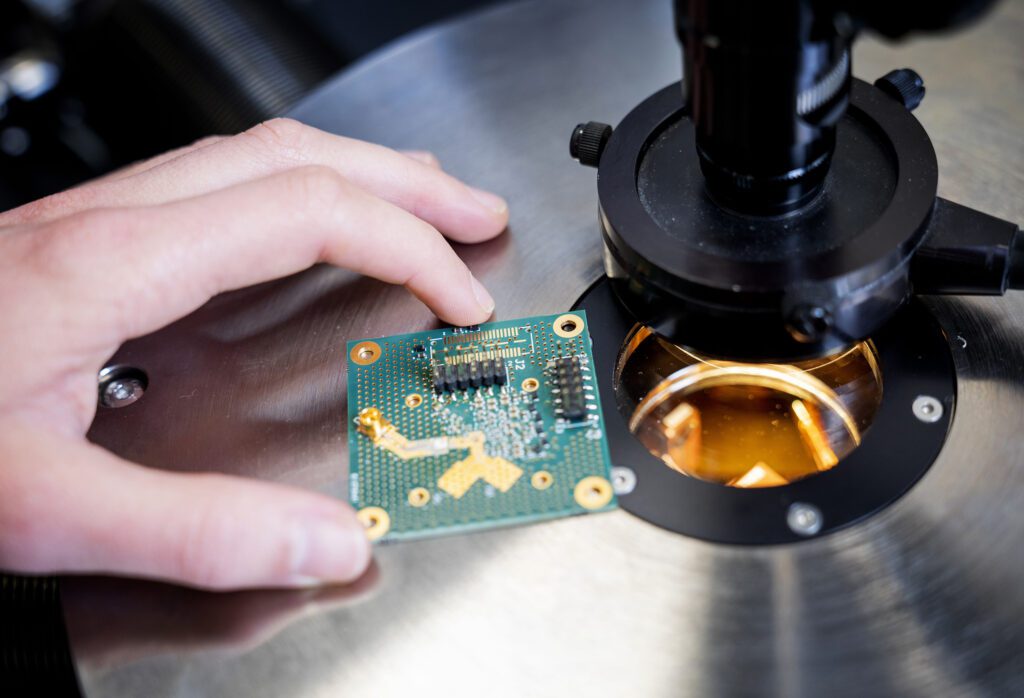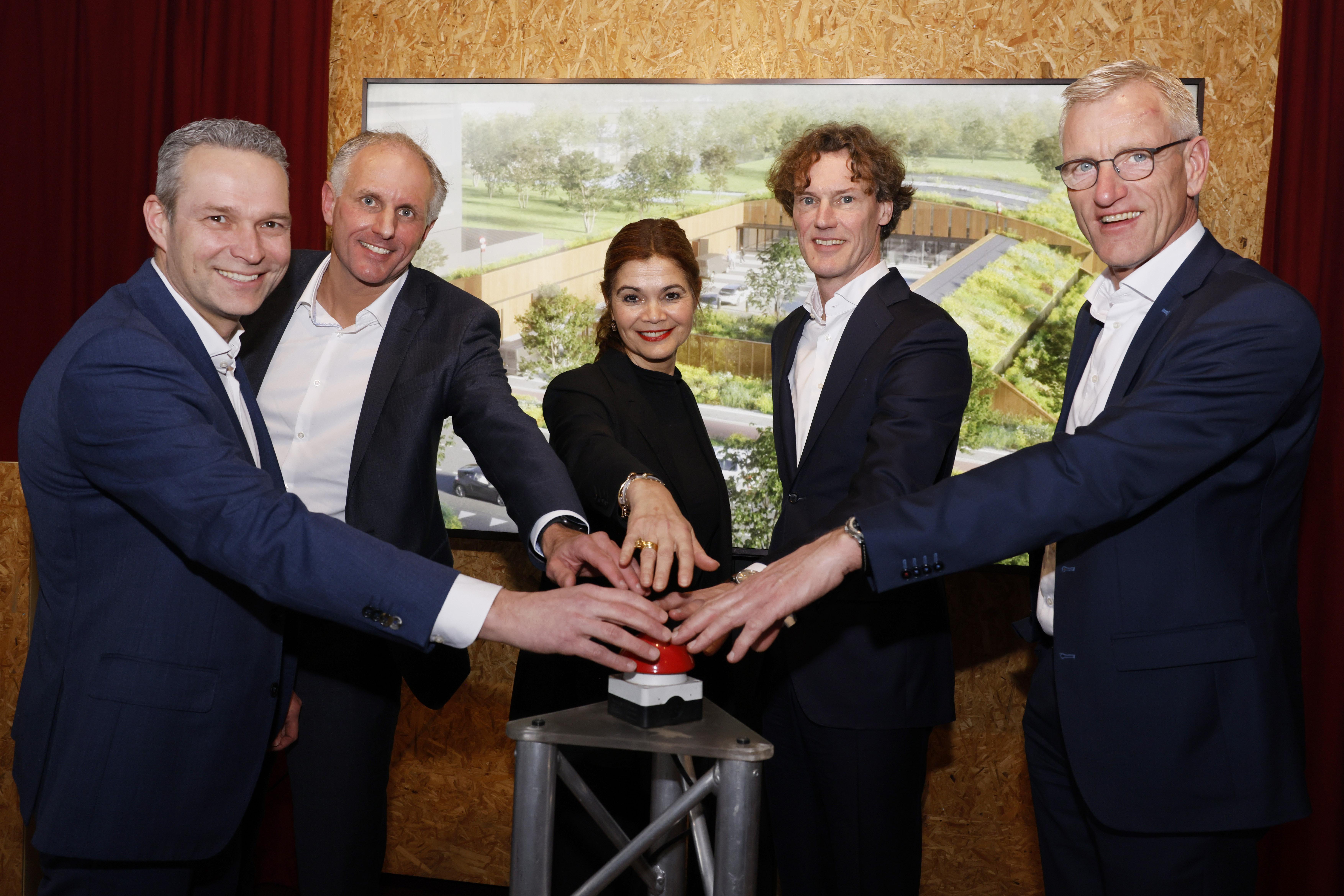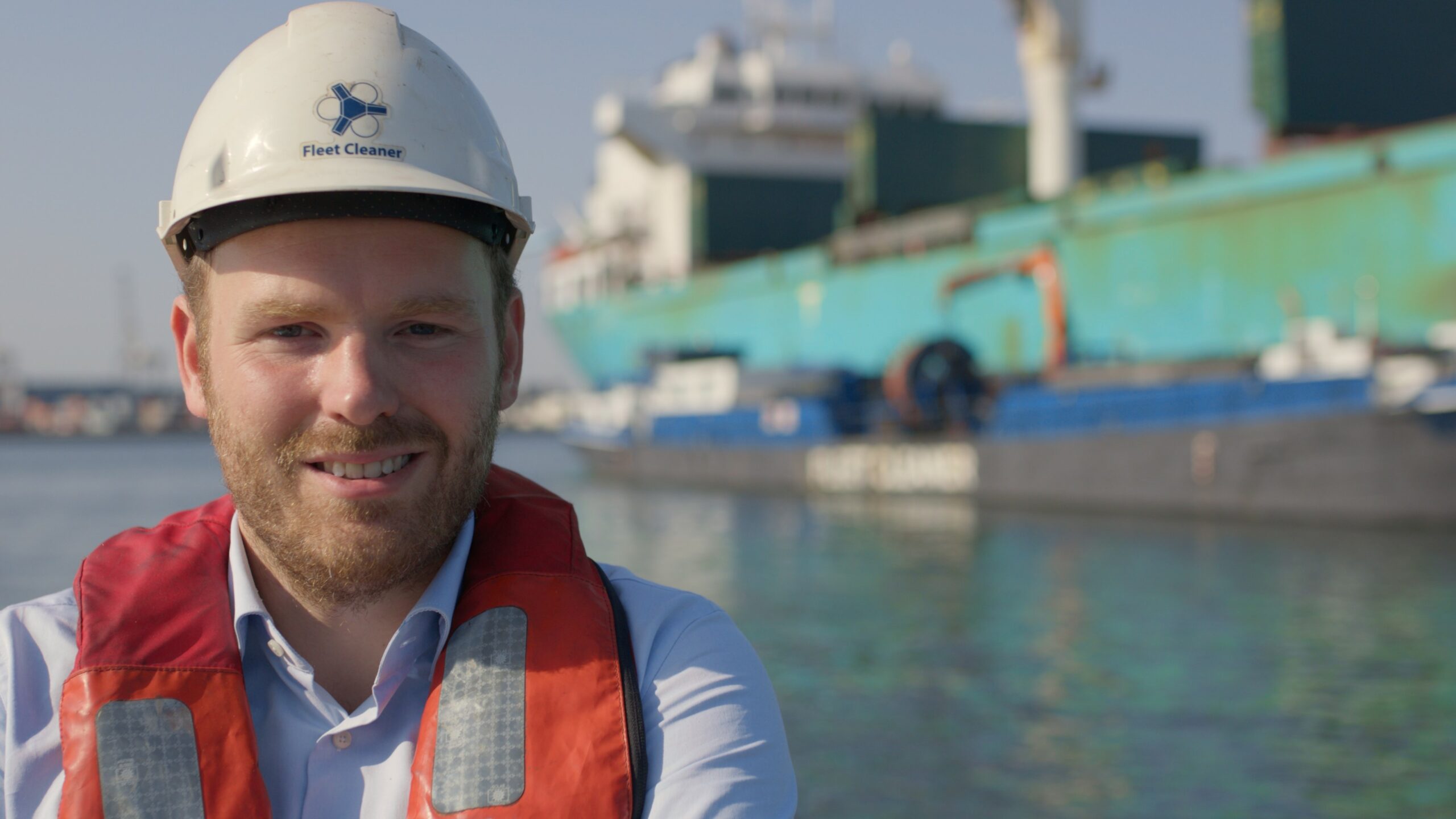
Scientists who are working intensively together with the industry on ground-breaking innovations on TU Delft Campus. That is the core of X!Delft, the new programme in which Delft University of Technology and large companies strengthen their collaboration. X!Delft was launched yesterday in RoboHouse, the new field lab for advanced robotics on TU Delft Campus.
Founding partners come from the industry (Heineken, Engie, Nouryon, VolkerWessels, NS) and finance (Aegon, Rabobank and Leaseplan). With an annual contribution to X!Delft, they kickstart the development of joint innovation programmes. These programmes are drawn up on the basis of both the strategic challenges of the partners and the scientific challenges for the researchers, and are expected to lead to intensive experimentation and innovation within the entire innovation ecosystem around Delft University of Technology: from students and researchers to fieldlabs and startups.
If you want to stay ahead as innovative company, you have to think about the long-term challenges and start working on them today
Co-creation
The initiative is all about co-creation: the university and industry will explore and apply new technologies together, at a single place, that can contribute to a better society. X!Delft represents the ongoing shift from contract research to a new, multidisciplinary form of public-private collaboration. For companies it is more urgent than ever to be involved at an early stage in new, complex technologies in the field of robotics, artificial intelligence or block chain and to work on societal relevant themes such as the energy transition, reducing the CO2 footprint or finding mobility solutions.
“If you want to stay ahead as innovative company, you have to think about the long-term challenges and start working on them today”, president of the executive board Tim van der Hagen states. “It is often about complex problems that companies, industry, government agencies or knowledge institutions cannot solve on their own. Intensive collaboration is needed and that is what we’ll do. At a the same spot, in a single building, on TU Delft Campus.”
Dynamic ecosystem
As a result, the campus will develop even further into a dynamic ecosystem where several companies will be more visibly present. For example, Heineken will be working with scientists on various challenges related to the local versus global sourcing of raw materials, reducing CO2 footprint and use of water, and the development of interesting solutions such as the use of solar energy for the generation of steam. Rabobank wants to know what role it can play in future smart cities. VolkerWessels wants to operate more sustainably and is looking for solutions in its production processes to reduce its CO2 footprint to zero.
Scientific quality
The scientific quality is guaranteed in this new way of working together, Van der Hagen emphasizes. “Because the companies are partners in X! Delft we can make good agreements, in the same way as in other partnerships the university already is involved in.” Scientists may publish their research themselves.
X! Delft has been set up together with Roland Berger. “With X!Delft, we are creating a platform where large companies can effectively experiment with new technology, bring new applications to the markets rapidly, in open collaboration, with one of the best universities in the world”, partner Benno van Dongen from Roland Berger says. “That is why the university of technology will increasingly become an important in their innovation strategy.”



